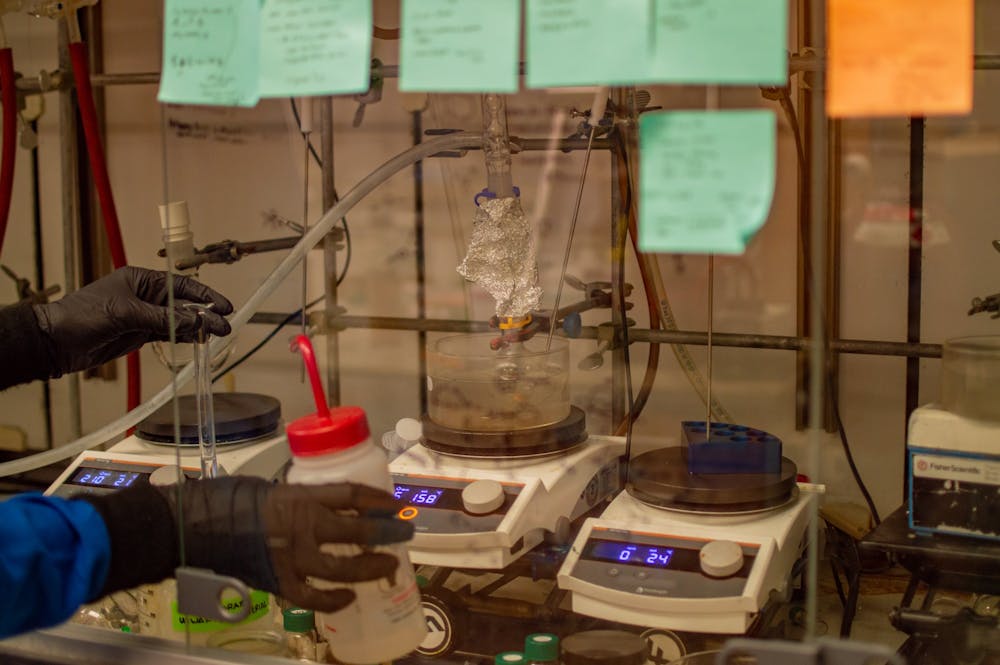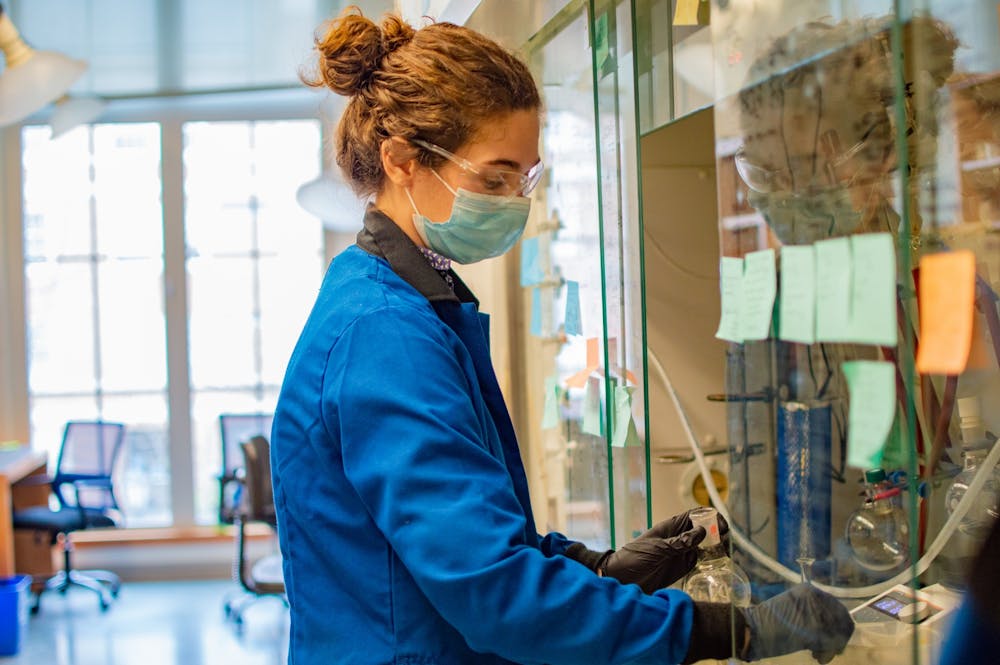Chemists from Leibfarth and Alexanian groups at UNC are working to design a process to change the properties of common plastics to create a tougher material.
This research could allow for more widespread reusing and recycling of single-use plastic products.
Polymers are found in common plastic materials such as garbage bags, yogurt containers and water bottles, Frank Leibfarth, head of the Leibfarth group and assistant professor in the Department of Chemistry, said.
The research aims to create a stronger plastic material, one that has expanded value and use over common plastic products.
"By creating this material that is tougher, that is stronger — it has a higher economic value and is used in materials that cost more than a plastic bag at the grocery store," Leibfarth said. "That creates an economic incentive for recycling."
He said that one of his long-term visions for the research is to create solutions for the negative environmental consequences of two specific polymers, polypropylene and polyethylene. These polymers make up a significant amount of plastic production and waste.
"These are about 60 percent of world plastic production, these two polymers alone," Leibfarth said. "There are enough polyethylene and polypropylene produced every day in the world to more than fill up Kenan Stadium like to the top."




